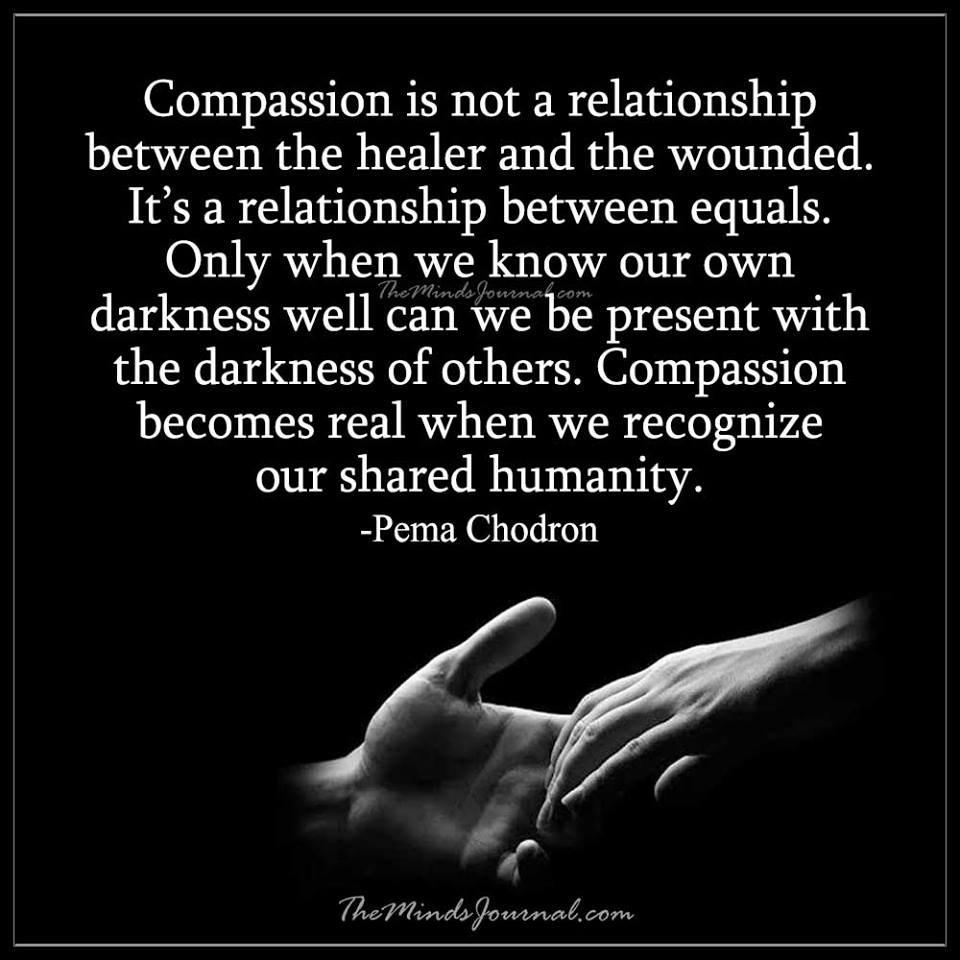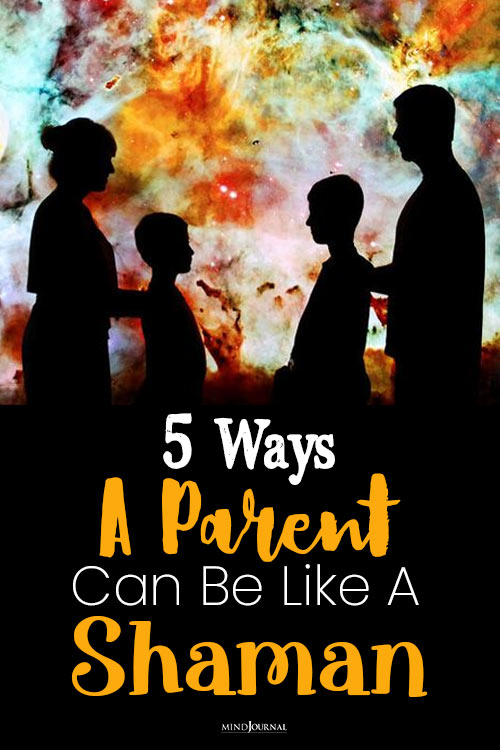Shamans are wounded healers who guide people that become lost while navigating through life and fulfill multiple functions, just like a parent. If you are a parent, then you must know about the shamanic approach for parents.
Parenting is one of the most rewarding roles we can have as human beings. As parents, our job is to raise, guide and protect our children, to heal them, and to prepare them to face the challenges of the world and experience the grandeur of the universe. And perhaps this is why, being a parent is often similar to being a shaman.
Parents are healers
Parenting is a serious responsibility. If you are a parent, you already know the challenges and joys that come with this journey. As parents, we always give our best to ensure that our children are raised in the best way possible in the most fitting environment. But most of all, our jobs as parents is to equip our children with the right life skills so that they can take up their role in society.

But as life would have it, in the process of becoming a responsible adult, our children often become confused, lost, misguided, and misdirected that can lead to a lot of mental, physical, and emotional wounds. Wounds that no parent would ever want their children to experience. Yet, the reality is this is how life works. This is how children learn and grow and become adults.
Unfortunately or fortunately, as parents, it is our job to clean their wounds, help them heal, and guide them towards the right direction. Not by commanding, dominating, or manipulating their lives, but by understanding them and leading them.
No one can deny the role of a parent as a healer and as a guide in their child’s life. And it is in this essence, a parent can be like a shaman.
Related: Wounded Healer: Signs You’re Broken But Choose To Help Others
Parenting and shamanism
The term shaman refers to a healer, someone who knows about medicine. Through altered states of consciousness, they have realized that our material realm is a manifestation of the spiritual realm. They are trained in ways to interact with both worlds and gain certain abilities to heal people of their ailments.
Although a shaman is widely seen as a priest or a witch doctor, inherently, they are healers and their primary task is to bring happiness and love into the lives of people. And this is exactly what a parent is. Shamans gain knowledge from nature & spirits and heal illness in others at the soul level. Similarly, parents gain knowledge from their own life experiences and use that awareness to give their children what they never had.
Individuals who were raised by toxic parents tend to become the most empathetic and compassionate parents themselves. They make sure the toxicity and parental abuse they were exposed to as children never reach their child. In a way, parents heal themselves by giving their children a healthy childhood. As parents, we need to realize that it is our duty and responsibility to care for our children.
To teach them crucial life skills, to teach them values, to nourish and nurture them, and to create a safe space for them where they can grow up to be the person they are. This is the shamanic approach for parents.
Mindful parents realize that we don’t own our children. They are not our property. They do not belong to us. Rather the universe has given us the responsibility to raise them as knowledgeable and responsible adults. And that’s what shamans do with people in their tribe. Shamans don’t take the high ground or show power over others. They simply guide the ones that need help to so that they can heal themselves.
Both parenting and shamanism can be seen as a sacred mission where we empower others to go on an adventure called life.
Related: 10 Signs You Are A Shaman And Don’t Know It
5 Ways a parent can be like a shaman
Have you ever thought of a parent as a shaman? According to author and aspiring yogini Bhavika, a parent can be seen as a shaman as both guide people to seek their individual purpose in life. Here are a few ways parents and shamans are alike –
1. They create a safe space
In order to heal someone who is hurting, a shaman will first create a conducive environment where the healing process can take place. Shamanic rituals may involve various steps and stages involving induction, deepening, suggestion, enactment and visions. It can also involve chanting, rattling, drumming, miming and dancing. This entire process of creating the environment allows the shaman to help the other person connect with their inner self and heal their soul.
Parents tend to do the same with their children. We create a safe place for our children to make sure they can grow up mentally and physically healthy. We ensure our family dynamics are not toxic and we don’t treat any family member with negativity. Why? Because children from broken households often tend to struggle with mental health issues like PTSD and substance abuse when they grow up.
When you follow the shamanic approach for parents, you will strive to do your best to build a healthy and positive space where your child’s needs are met. You will make sure they are emotionally and physically nurtured and nourished. They are given the opportunity to make decisions independently so that they can grow up with self-confidence and a healthy self-esteem.
Related: How Parents Cause Mental Health Problems In Children
2. They are guides, not instructors
Shamans guide others to explore their individual journey in life, both in this physical world and the spiritual realm. Shamans do not provide instructions that others have to follow blindly, even when a ritual is in progress.
Although there are certain rules for each ceremony, shamans guide people regarding what is best for the individual. Whether the person follows the shamans advice or not is primarily upto them. There is no compulsion or fear of punishment if the shaman’s word is not followed. The goal of the shaman is to spiritually heal the person, not to control them.
Parents do the same with their children. Granted there are some parents who are hellbent on controlling and manipulating their children’s lives even in their adulthood, but we are not talking about narcissistic or abusive parents here. We are focused on parents who want to raise happy, confident children.
A parent who wants the best for their child knows that being overprotective, overbearing and controlling will do more harm to the child than good. Instead, these parents realize that the best way to teach children values and positivity is by showing them.
What parents do as a person will leave a more lasting impression on their children than what parents tell their children to do. Good parents lead through example, not through instructions. This is perhaps the best example of the shamanic approach for parents.
Both shamans and parents have a lot of empathy and compassion to realize that the ones they are trying to help do not need rules, instructions or lessons. What they need is people who can understand their problems and guide them forward.

3. They heal through music
Studies have found that music can “facilitate a healing environment.” Perhaps this is one of the reasons why both shamans and parents use the power of music to heal and help people and children. Music exists in nature – in the sound of the wind, in the rustling of leaves, in the rippling of tall grass, in the sound of rain, in the call of birds and animals. Music is everywhere in nature.
Related: 29 Signs You Are A Spiritual Healer
Shamans often use natural sounds and healing music to help people in their rituals as music has been found to enhance cognition, emotion, perception and action. Research shows that since time immemorial, music has been “almost inextricably linked to healing processes.” In the same way, parents, mostly mothers, sing lullabies and soothing songs to their children to help them calm down and sleep, according to author Bhavika.
In fact, a recent 2021 study shows that mother’s lullaby can help infants to get better and longer overnight sleep. Researchers have also observed that lullabies can reduce heart rate, distress & negative emotions and increase relaxation, attention & smiling in infants.
Music is a crucial essence of the cycle of nature and life. Nature, humans and music are all created with the same ingredients – harmony and rhythm. No wonder parents following the shamanic approach for parents use music as a healing tool to help children find peace, feel relaxed, safe and comforted. “Music makes us feel like we are back in the arms of our mother, the ultimate source of love and security,” explains a 2009 study.
4. They are non-judgmental
Healers don’t judge the ones they heal. They have high levels of empathy, compassion, and kindness which provides them the ability to soothe others. They accept reality as it is without getting attached to it. Reports have found that healers see themselves as “companions” and “counselors” in the healing process.
Their profound empathetic understanding, clairvoyant perception, and intuition helps them understand what is needed to help someone. And this is why shamans are non-judgmental individuals. Their primary goal is to help people, not to label them. Not to point out their flaws and imperfections. Regardless of what a person’s past actions might have been, shamans help them build better futures.
Related: 10 Signs You Have Hidden Healing Powers
And parents do the same for their children. Parents don’t label or judge their children based on their worst mistakes. Parents help their children to identify and understand their mistakes and learn from them. Instead of labeling a child as naughty or nice, the shamanic approach for parents teaches us to accept and celebrate your child’s uniqueness while teaching them values. Parents guide their children to find their own path and help them get back on track when they get lost. Judgment has no place in the heart of a parent or a shaman.
5. They heal themselves
Both shamans and parents are wounded healers who understand that they can only help others when they heal themselves first. Self-healing is essential for healers as it enables the healers to improve the quality of their own lives, reduce psychological distress and boost morale. Shamans and parents realize that strengthening their inner self is important, even if it requires years of practice, training, initiation or therapy. Shamans thrive on doing inner work which empowers them to connect better with the spiritual realm and use the knowledge of the spirits to help people in their tribe.
Related: The Oldest Self-healing Method In The World: 10 Minutes A Day To Heal Your Soul
Similarly, parents make a conscious effort to practice self-care and self-healing as children can often trigger past memories, invisible wounds, and repressed emotions from their parents’ own childhood. Children can bring our old fears and insecurities out no matter how hard we try to hide them.
And the only way to deal with this is to address these unhealed issues directly and be mindful about self-healing. Only by healing our past trauma, loving ourselves, and evolving through pain can we make life more meaningful for our children and for ourselves.
When you follow the shamanic approach for parents, you will never hesitate from taking the time and effort to heal the inner self. Cause that is the true secret to becoming a great shaman and a mindful parent.
Shamanic parenting is parental shamanism
Healing is a noble task, whether you are a shaman or a parent. Healing someone’s soul and helping a little soul find its way in the world are sacred responsibilities bestowed on us by the universe. Shamans often act as parents to guide lost souls and parents often act as shamans to heal lost children because everything in the universe is connected. So parents, embrace your inner shaman and embrace the shamanic approach for parents.
Related: 7 Signs Your Inner Shaman Is Awakening
Frequently Asked Questions (FAQS):
What is shamanism?
Shamanism refers to a religion, usually practiced by aboriginal individuals in Siberia & northern Europe and Asia. Shamanism is marked by belief in ancestral spirits, demons and gods who interact with shamans or practitioners of shamanism.
What does the term ‘shaman’ mean?
The term shaman usually refers to someone who knows about the spiritual realm, medicine and healing.
What is the role of a shaman?
Shamans are traditionally seen as healers. They gain the ability to communicate with the spirits of nature and heal illnesses of the soul. They use altered states of awareness, mediation and repetitive sounds for healing.
Where do shamans get their powers from?
Shamans gain their power from the spiritual realm to heal the sick. They also help the deceased in crossing over to the other side, use nature to help their tribe and to protect the community from danger.
What is proper parenting?
Proper parenting is mindful parenting. Good parents understand how their actions and behaviors can affect the development of their children. They raise their children with purpose and avoid reacting negatively to stressful situations. Good parenting is about teaching your child to be kind, honest, confident and independent.
What are the 4 types of parenting styles?
In psychology, there are 4 types of parenting styles, namely authoritarian, authoritative, permissive and uninvolved or neglectful parenting.
What is the best parenting style?
It is believed that an authoritative parenting style is the best and most effective way to raise children. Such parents raise successful and confident children who have strong social and problem-solving skills.
How can I be a good mother?
To become a good parent or mother, you should love your child unconditionally, be patient, empathetic, supportive, authoritative, respectful, and strong yet humble. You also need to make the right decisions that are best for your child.











Leave a Reply